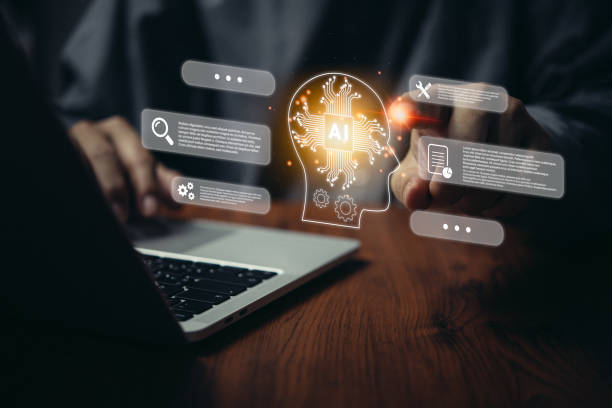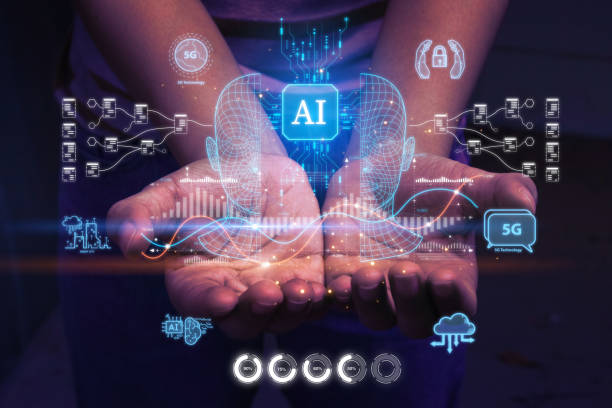Artificial Intelligence: The Dawn of a New Era
Unleashing the Potential of Machine Intelligence

Yes, the following blog entry discusses artificial intelligence:
Artificial Intelligence: A New Era in Progress
The phrase artificial intelligence (AI) has become widely used, frequently evoking visions of autonomous vehicles and sentient robots. Even while these could be the state-of-the-art in AI research, the technology is already significantly affecting our lives—often in ways we are unaware of.
Explanation of Artificial Intelligence
Artificial intelligence (AI) can be simply defined as the capacity of machines to mimic human intelligence. This covers activities like learning, thinking, and solving problems. Even though artificial intelligence (AI) covers a broad spectrum of methods and algorithms, it is commonly defined by three traits:

Education: AI systems don't need to be explicitly coded; they can learn from data. As a result, they can adjust to changing circumstances and gradually raise their level of performance.
Justification: AI systems are capable of reasoning about their environment and coming to conclusions through deduction and logic.
Solving problems: Artificial intelligence (AI) systems are capable of pattern recognition, prediction, and action.
Implications of AI
A wide range of industries, including healthcare, banking, transportation, and manufacturing, are already feeling the effects of artificial intelligence. AI is being applied to healthcare to create novel medications, identify illnesses, and customize treatment regimens. AI is being utilized in finance to evaluate risk, find fraud, and make investment decisions. AI is being applied to the transportation industry to create self-driving automobiles and improve traffic flow. AI is also being utilized in industry to enhance production processes, forecast equipment problems, and enhance quality control.
The impact of AI technology is only expected to increase as it develops further. It is anticipated that artificial intelligence (AI) systems will advance in sophistication, eventually achieving activities that were previously believed to be limited to humans.
Applications of AI
AI has several possible advantages, such as:
Enhanced productivity: By automating jobs, AI frees up human workers to concentrate on more strategic and creative work.
Enhanced ability to make decisions: AI can reveal information about data that would be hard to locate using more conventional techniques. Making smarter decisions may result from this.
Cost savings: AI can optimize workflows and automate jobs, which can save companies money.
Enhanced innovation: Artificial intelligence can assist us in creating new goods, services, and fixes.
The AI Challenges
AI has a lot of potential advantages, but it also has some drawbacks, such as:
Displacement of job: A potential consequence of AI automation is job displacement. In order to prepare workers for the jobs of the future, this will force us to reconsider our current systems of education and training.
Errors: AI systems may exhibit biases inherent in the training data. Discriminatory effects might result from this.
Ethics: Many ethical concerns are brought up by the creation and application of AI. Who, for instance, is accountable for the deeds of AI systems? How can we make sure AI is applied for benefit rather than harm?
AI's Future
Since AI is a constantly developing science, it is hard to say with certainty what the future will bring. Nonetheless, a few patterns are probably going to influence how AI develops in the next years:

Comprehensible AI: In order to improve the explainability of AI algorithms, researchers are creating new methods. This will enable us to trust the decisions made by AI systems and better understand how they operate.
AI for societal benefit: AI is being utilized to tackle several societal issues like illness, poverty, and global warming. This pattern is probably going to continue as we try to figure out how to apply AI to improve the world.
In conjunction with human AI: Artificial Intelligence cannot replace human intelligence. Rather, it is an instrument that can enhance human potential. AI is probably going to lead to more human-machine collaboration in the future.
Artificial Intelligence is a potent technology that has the capacity to drastically alter the planet. Utilizing AI sensibly and morally is crucial if we are to optimize its advantages and reduce its drawbacks.












































































































































































































